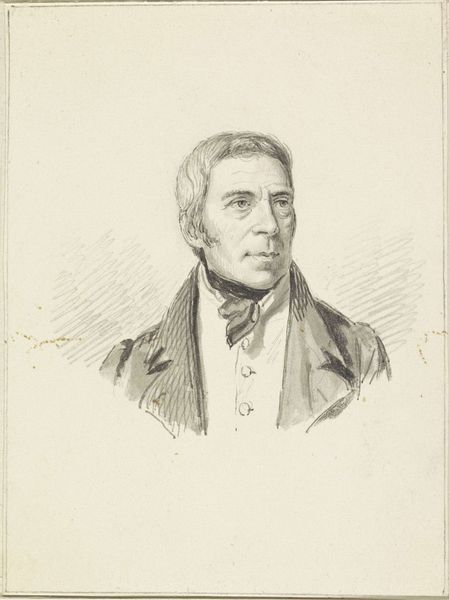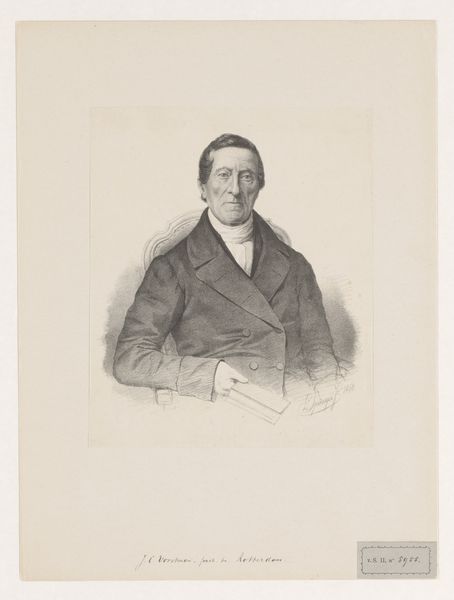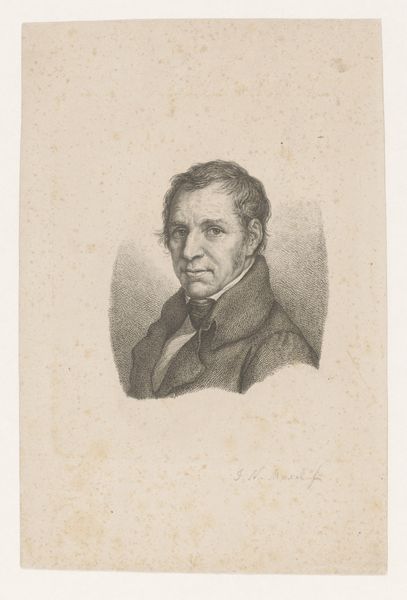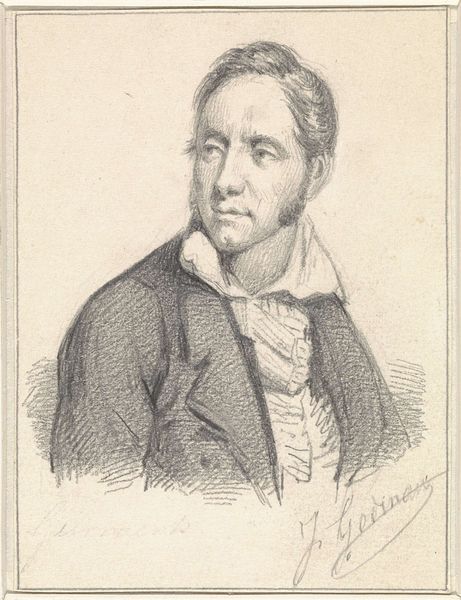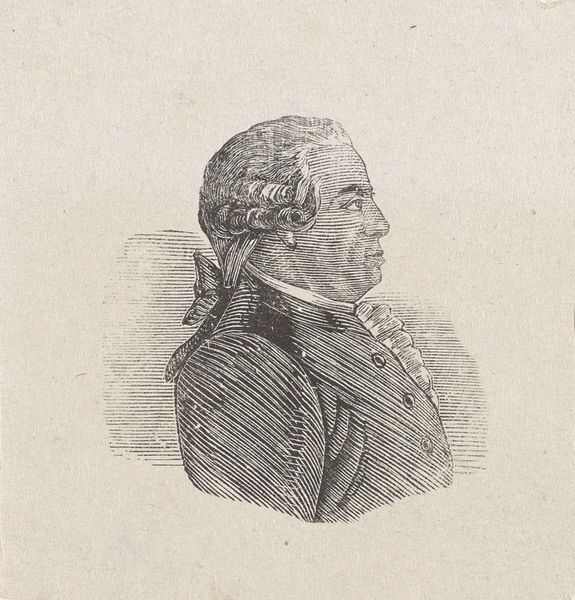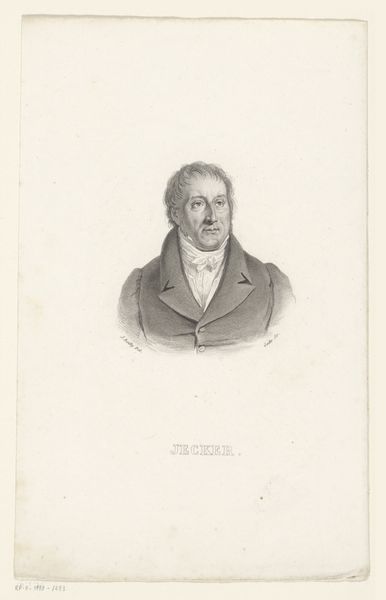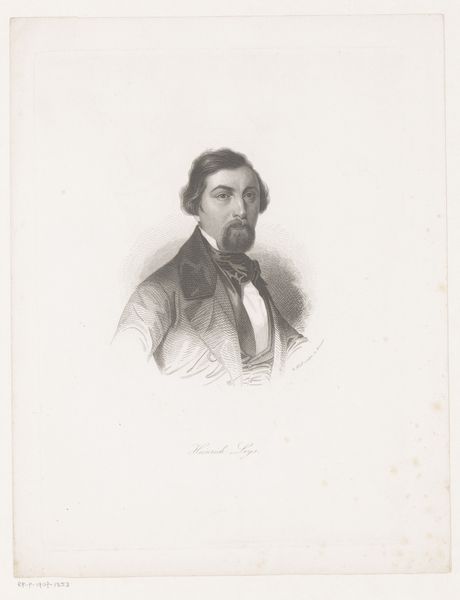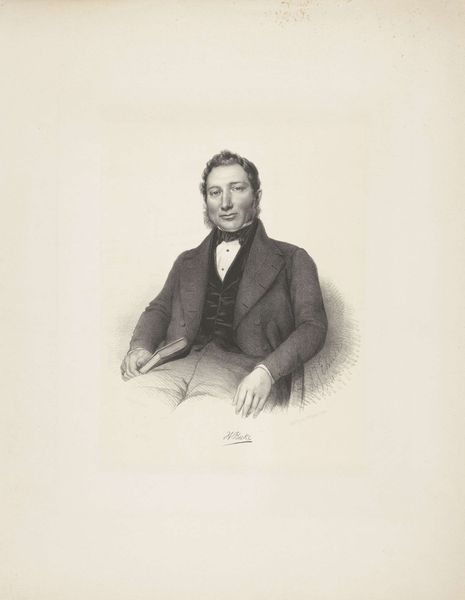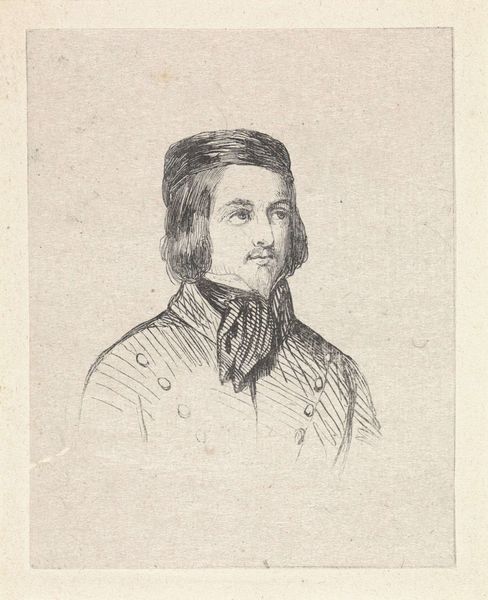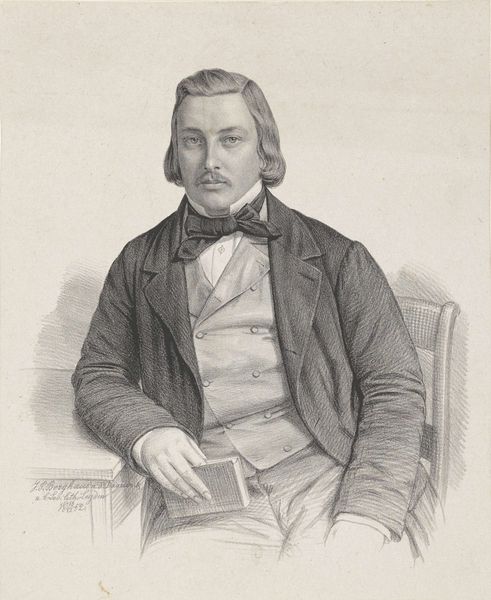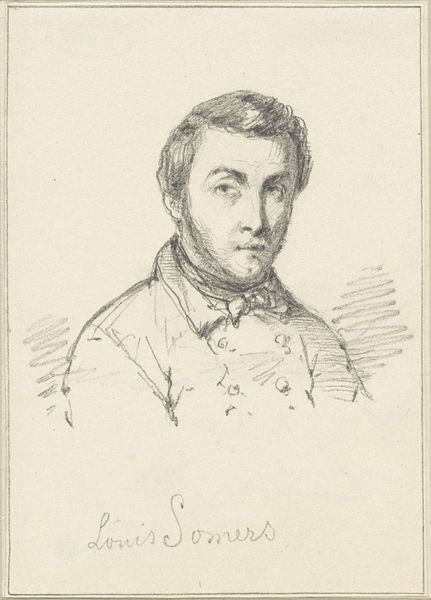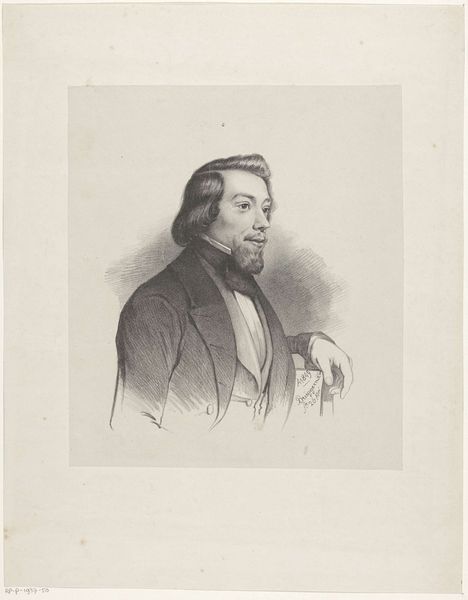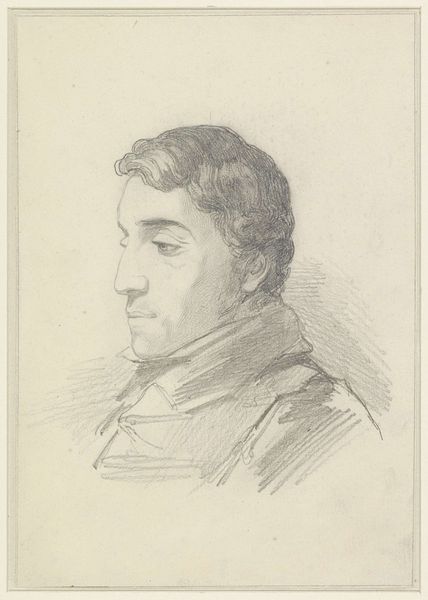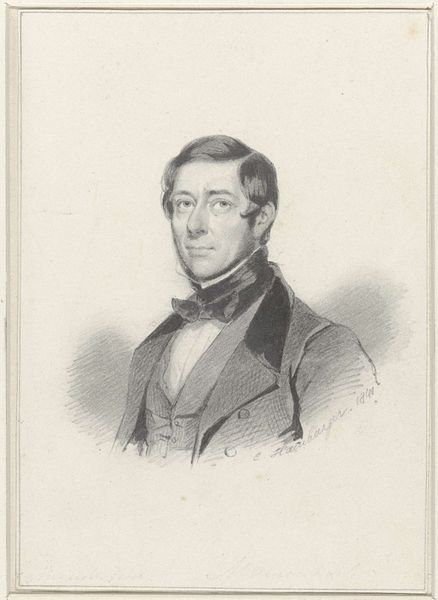
drawing, pencil
#
portrait
#
pencil drawn
#
drawing
#
pencil sketch
#
charcoal drawing
#
pencil drawing
#
pencil
#
portrait drawing
#
academic-art
#
realism
Dimensions: height 215 mm, width 140 mm
Copyright: Rijks Museum: Open Domain
Editor: Here we have Pieter van Loon’s pencil drawing, "Portret van Jacobus Bellamy," created in 1886. It's striking how much character is conveyed with such simple lines. It feels almost like looking at a silhouette come to life. What do you see in this piece? Curator: I see a careful construction of identity through culturally resonant symbols. The profile view itself evokes classical portraiture, suggesting an aspiration to lasting fame. Notice the subject's attire, particularly the jacket. How does its subtle texture, rendered with such precision, inform our understanding of his social standing? Editor: I suppose it implies respectability, a certain formality? Curator: Exactly. But consider also the averted gaze. Where is he looking, or rather, what is he looking *at*, symbolically? Is it the future, perhaps, or an idealized version of himself? Think of the collective memory, and how portraits function to immortalize individuals while simultaneously communicating ideals. Editor: So it’s not just a likeness, but a statement? Almost like branding? Curator: Precisely. Van Loon utilizes established visual codes – the profile, the clothing, the gaze – to position Bellamy within a specific cultural narrative, appealing to collective ideals about reputation and legacy. What remains unspoken, perhaps, is as crucial as what's clearly depicted. The blank page speaks volumes, doesn’t it? Editor: It really does. I never thought about portraiture in terms of visual codes, but it makes perfect sense. I see it differently now. Curator: Indeed. Looking at art involves learning to "read" these symbolic languages. Each line, each shade, contributes to a complex interplay of meaning, echoing across time and culture.
Comments
No comments
Be the first to comment and join the conversation on the ultimate creative platform.
